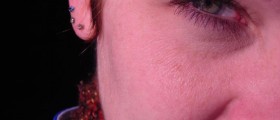
Vitamin D is a fat-soluble vitamin that is essential for proper absorption of calcium and phosphorus. Its primary role is to assist these minerals to get into the bones and teeth. This way bones and teeth become strong. Adequate intake of vitamin D, therefore, is an excellent prevention against brittle bones. Vitamin D is also necessary for the proper function of the immune system.
There is a recommendation on how much vitamin D should be taken on a daily bases. One should stick to prescribed dose and never exceed it. Excessive intake of vitamin D leads to vitamin D toxicity.
How is Vitamin D obtained?
Vitamin D can be obtained from sunlight, food and vitamin supplements.
The most efficient way for our body to be well supplied with vitamin D is from the exposure to sunlight. If the skin is exposed to sunlight it synthesizes a compound which is converted into vitamin D. This conversion is assisted by the liver and kidneys. A sufficient amount of vitamin D can be produced if a person spends 10-15 minutes per day in the sun (expose his or her face and arms), and does not use sunscreen. This exposure should be done two to three times a week. Normally it is recommended for people to avoid exposure to sunlight when it radiates most intensively. People living in the northern parts of the U.S. require more time in the sun than those lining in the south. This particularly refers to winter months. The explanation is simple. Namely, during winter the sun is lower in the sky.
Vitamin D can be also obtained from certain foods such as milk and some other dairy products. It is also available in fortified breakfast cereals, breads and orange juice. Still, sufficient intake of vitamin D simply cannot be obtained via food.
And finally, for people who cannot obtain an adequate amount of vitamin D there is one more option- vitamin D supplements. You should always consult with your doctor before taking any supplements.
Lack of Vitamin D
Insufficient intake of vitamin D affects bone groth and it can also cause additional problems, for example, if lack of vitamin D affects growing children their bones will not develop properly and they will suffer from rickets. In adults lack of vitamin D leads to another medical condition called osteomalacia. Osteomalacia is a medical condition which features the softening of the bones due to defective bone mineralization. Insufficient intake of vitamin D can also lead to an increased susceptibility to infection since the immune system cannot function adequately if there is not enough vitamin D.

















Your thoughts on this
Loading...